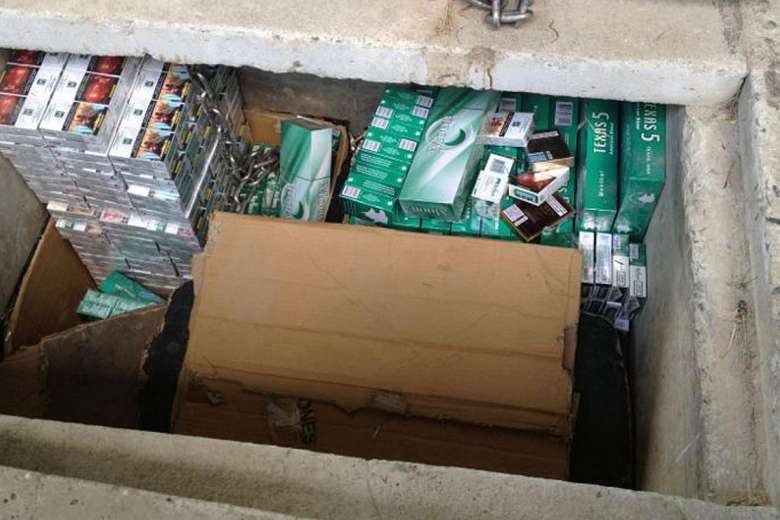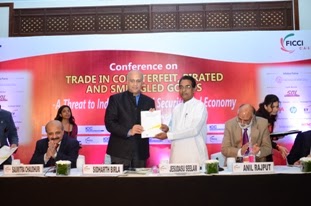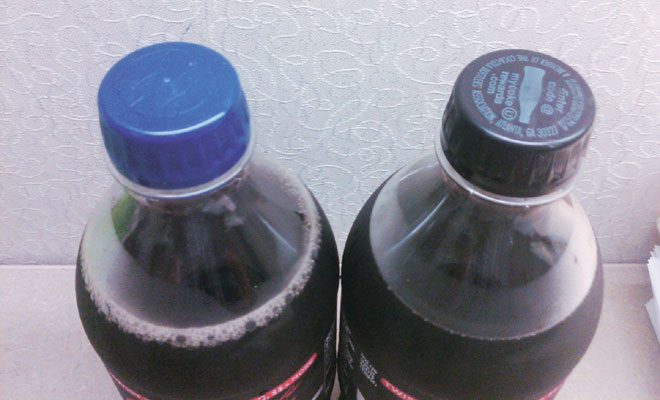
Singapore is No. 4 for illicit tobacco use; 1 in 4 cigarettes here illegal
Crocs exec says speed key to tackling counterfeits
Footwear company Crocs Inc has said the key to protecting its brand from counterfeiters is simply to be quicker at bringing new product lines to market. The company’s chief financial officer Jeffrey Lasher said during the firm’s second-quarter results call he company is being challenged by illegitimate copies of its products around the world, particularly in countries where intellectual property (IP) laws and enforcement are not as strong as established markets such as the US or Japan. The Asia-Pacific region is an increasing important market for the sandal and clog maker as its core markets in the US, Europe and Japan start to slow down. The company already makes 66 per cent of its revenues outside its home US market, and Asia (excluding Japan) has been the start performer – growing at around 20 per cent to reach $202m in the first half of this year, or around 30 per cent of the total turnover of $675m. “Our strategy is to just outpace the counterfeiters,” Lasher told investors earlier this month. The company needs to keep updating its range with production and engineering requirements that set a high design hurdle for counterfeiters to overcome.
Lear MorePernod Ricard turns to QR codes to fight fakers
French beverage company Pernod Ricard will add QR codes to all products sold in China from next April in a bid to thwart counterfeiters and engage with customers. Customers buying Pernod Ricard beverages will be able to scan the codes using their smartphone and not only check if the bottle is genuine but also learn about the production process and other features of the brand, whilst providing valuable market intelligence to the manufacturer, according to a just-drinks.com report.
The move is an extension of the company’s use of QR codes and smartphone apps to engage with its customers, for example by providing access to personalised drink recipes. Pernod Ricard has adopted a multi-layered approach to anti-counterfeiting, with field teams constantly scanning the marketplace for fakes and packaging innovations adopted to make it harder for criminals to mimic its products. In addition the QR codes, the company has also introduced distinctive bottle designs for its Ricard and Absolut Elyx brands that adhere to certain specific 3D dimensions and are harder to copy. In 2011, the company scored a victory against counterfeits in Asia after Chinese Supreme People’s Court handed down a verdict on a case involving Chivas Regal and Royal Salute in Daxing.
Lear MoreMeasures tightened against fake products
Lab tests mandatory for imported goods from Nov. 4
MADINAH – Saudi Customs Department will impose a ban on import of goods for which there are no laboratory test facilities in the Kingdom from Nov. 4 (Muharram 1). A committee, comprising various government agencies, took the decision to ban entry of such products, as well as to return them to their original destinations, according to sources at the department. The committee has also ordered returning those goods, which do not have the attached certificates. Custodian of the Two Holy Mosques King Abdullah has approved the committee’s decision. The committee issued the order after examining the annual report of the Saudi Standards, Metrology and Quality Organization (SASO) in this regard. The department has notified all importers in the Kingdom that the ban decision should be enforced strictly effective from the beginning of the next Hijri year. Saudi Customs has instructed the concerned agencies to test the products to ensure that they are meeting all the terms and conditions set by SASO. This is also part of the measures to prevent entry of counterfeit and duplicate products into the Kingdom.
Lear MoreInternational – Only a quarter of brand owners participate in anti-counterfeiting coalitions, survey reveals
Data shared at last week’s Intellectual Property Owners Association (IPO) annual meeting in Boston suggests that too few trademark owners are contributing to a united front against counterfeiting. Companies participating in this year’s IPO corporate benchmarking survey were asked whether they belong to anti-counterfeiting groups or associations, including industry coalitions that pool money to take action against counterfeiters. Of those companies that responded, just 26% said that they were members of such anti-counterfeiting groups. WTR has previously covered the challenges that brand owners face in getting consumers on side to help counter the copycats. The ultimate success of anti-counterfeiting lies in ending the demand for fakes, as well as cutting off the supply. To achieve this, consumers need to be educated on the socio-economic impact that counterfeiting can have on their everyday lives and those of others around the world; though for that to be a success, trademark owners need to provide better evidence of the links between counterfeiting and harmful activities such as organised crime, unsafe working practices and tax evasion, among others. Speaking to WTR back in issue 38, True Religion Brand Jeans general counsel Deborah Greaves suggested that the most effective way of getting this message across to the public is via “a wide-scale, media-based campaign… But a brand like ours just doesn’t have the resources to go out there and spearhead one by ourselves.” There may be compelling reasons for a brand owner to refrain from participation in a broad-based anti-counterfeiting association – for some, the prospect of being open and vocal about their counterfeit problems may feel like they would be offering an invitation to further copycats.
http://www.worldtrademarkreview.com/daily/Detail.aspx?g=03eede42-79ba-48d6-918a-578ff947cbf6
Lear MoreCounterfeiting, piracy used in terror funding
Counterfeiting, piracy and smuggling are emerging as the likely sources for financing international terrorist organisations, non-state sponsored terrorist organisations and domestic terrorist groups, a Ficci-Ernst & Young study has said. While conventional modes of terror financing, like state sponsorship and donations, continue to play a big role, newer modes, like counterfeiting, piracy and smuggling, have also started emerging, and terrorist organisations worldwide are exploiting such means to further their cause, it said. The study quoted reports compiled by various agencies revealing penetration of counterfeiting is huge in some sectors. It said almost 10 per cent of all the drugs sold worldwide are fake and this number goes up to 25 per cent in India. Ficci conducted a detailed study of seven sectors in India on the impact of grey markets on sales loss to industries and taxation loss to the government. Grey market in the automobiles sector is close to 30 per cent, followed by over 26 per cent in computer hardware and cumulative losses to the government in tax revenue due to these is close to Rs 4,000
Lear MoreCounterfeiting, piracy and smuggling used to finance terror
According to Ficci-Ernst & Young study suggested measures like setting up of govt agencies that should be solely responsible for preventing counterfeiting and piracy
Contemporary techniques like counterfeiting, piracy and smuggling are fast emerging as the likely sources for terrorism financing, according to a Ficci-Ernst & Young study. “Counterfeiting, piracy and smuggling are emerging as the likely sources for financing of international terrorist organisations, non-state sponsored terrorist organisations and domestic terrorist groups,” the study said. While conventional modes of terrorism financing such as state sponsorship and donations continue to play a big role, newer modes such as counterfeiting, piracy and smuggling have also started emerging and terrorist organisations worldwide are exploiting such means to further their cause, it said. The study suggested measures like setting up of government agencies that should be solely responsible for preventing counterfeiting and piracy. Besides, it also recommended strengthening of laws and regulations to aid enforcement agencies in investigating and prosecuting perpetrators of such crimes. According to the study, the government must create and implement standard technical solutions for piracy and smuggling, to be adopted across industry sectors and create awareness among consumers and enforcement agencies on the importance of effectively tackling counterfeiting, piracy and smuggling.
Lear More
FICCI CASCADE releases knowledge paper with ernst & young on “counterfeiting,piracy and smuggling :growth threat to national security”
FICCI CASCADE today released a knowledge paper with Ernst & Young on “Counterfeiting, piracy and smuggling: Growing threat to national security”. A detailed report in collaboration with Business Action to Stop Counterfeiting and Piracy (BASCAP) on “Counterfeiting, Piracy and Smuggling in India – Effects and Potential Solutions” was also unveiled. The conference was organized by FICCI-CASCADE (Committee Against Smuggling and Counterfeiting Activities Destroying the Economy) & Business Action to Stop Counterfeiting and Piracy (BASCAP) an initiative of the International Chamber of Commerce (ICC), with the aim of promoting a better understanding of the socio-economic consequences of counterfeiting, piracy and smuggling and the impact on national security. Inaugurated by Shri Jesudasu Seelam, Minister of State, Ministry of Finance, Government of India, the conference was addressed by Shri Saumitra Chaudhuri, Member, Planning Commission, Government of India, along with other leaders from government and industry.Bottom of Form
Lear MoreProduct aids fight against counterfeiting
Plastics Color Corp. has entered the anti-counterfeit market with a new line of particle taggants. The Calumet City, Ill., firm said its Mi Batch taggants are compatible with a wide variety of resins to impart a high level of security and verification for consumer products, electronics, medical products, aviation and automotive. Plastics Color says counterfeiting is a multi-billion dollar threat globally. “Mi Batch was developed as an extremely cost-effective anti-counterfeit measure enabling manufacturers and retailers to protect brand identity and ensure supply chain integrity,” explains Plastics Color vice president of business development Tim Workman. The company’s taggants have a unique chemical and spectral signature for each customer. Taggant particles become an integral part of the plastic material or item. Detection equipment can read the signature to verify authenticity of the product. Plastics Color says it can make the taggants in any volume. They can be added to a masterbatch to ensure supply chain integrity.
Lear More

FMCG sector: Govt loss at Rs 16,546 cr due to counterfeit brands
To curb the growing menace of counterfeit brands, FMCG companies ITC and Coca-Cola India, along with the Federation of Indian Chambers of Commerce and Industry (Ficci), are planning to take stringent steps in the next few months. To start with, Ficci’s committee against smuggling and counterfeiting activities destroying the economy (CASCADE) has initiated a pan-India movement against smuggling and counterfeiting amongst youth and consumers. “We are organising the first policy debate of an international level next fortnight in Delhi. Our objective is to enhance our understanding of ‘grey markets’ for smuggled, counterfeit and pirated commercial goods in and outside India, to assess their impact, and to promote effective strategies,” said Anil Rajput, chairman of Ficci CASCADE.
Lear More


